User Ideas / Prospects
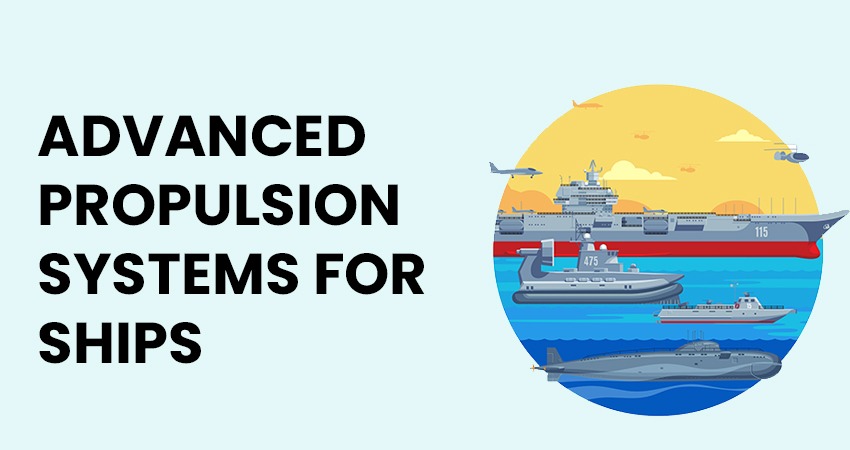
The marine industry has undergone the most dramatic revolutions. Ships
formerly powered by mere sails and even steam engines currently rely on really
advanced propulsion. These systems constitute the core or backbone of
efficiencies, sustainability, and performance. Within the modernized world,
constantly evolving demands continuously challenge marine engineers to innovate
solutions.
The operation of ships relies centrally on propulsion systems. These
are what define the speed, the consumption of fuel, and environmental impact.
Due to increased trade on a global level, it has been more crucial than ever to
enhance marine propulsion systems. Engineers have targeted systems that achieve
performance with sustainability.
Conventional
Propulsion Systems
Traditionally, ships used steam engines and diesel engines. These
systems were robust and reliable. However, they came with limitations. Steam
engines consumed large amounts of coal and water. Diesel engines improved
efficiency but contributed significantly to pollution.
Over time, the systems were improved. Contemporary diesel engines
consume lesser fuel and cause fewer emissions. However, there was still room
for improvement. The marine sector was crying for innovation. Society was in
need of cleaner and efficient technologies. These developments brought forward
the latest advanced propulsion systems.
Innovative
Propulsion Solutions
1. LNG-Fuelled Engines
LNG is a cleaner fuel compared to the traditional fuels. The carbon
dioxide and sulfur oxides emitted by LNG engines are less. They are gaining
popularity in the shipping industry. The ships that run on LNG are not only
environmentally friendly but also economical in the long term.
2. Hybrid Propulsion Systems
Hybrid propulsion uses a combination of diesel engines and electric
motors. The systems are less fuel-hungry and produce fewer emissions. Hybrid
ships can run on electric power when navigating sensitive areas, such as ports.
This limits air and noise pollution.
3. Fuel Cells
Fuel cells are another innovative technology. They use hydrogen to
produce electricity. The byproduct is only water. Fuel cells are quiet,
efficient, and environmentally friendly. Many companies are exploring their use
in ships.
4. Wind-Assisted Propulsion
Wind is back in vogue for modern shipping. Advanced sails and rotor
systems can harness wind energy to reduce the fuel consumption significantly.
Though they cannot replace the engine entirely, the savings of wind-assist
technologies are tremendous.
5. Nuclear Propulsion
Nuclear propulsion is not a new concept but is gaining renewed
attention. It is used in military vessels and icebreakers. Nuclear-powered
ships can run for years without refueling. However, challenges like safety and
high costs limit their use in commercial shipping.
Benefits of
Advanced Propulsion Systems
The shift to advanced propulsion systems offers many benefits. These
include:
●
Less Pollution: The new generation of systems has
been designed in accordance with stringent environmental regulations. They
reduce greenhouse gases and other harmful pollutants.
●
Economical Efficiency: Fuel-saving engines reduce
operational costs. In the long run, this saves money for ship operators.
●
Better Performance: Advanced systems provide
better speed and maneuverability. This increases the overall performance of
ships.
●
Sustainability: The marine industry contributes
to the global sustainability agenda by embracing clean technologies.
Development
Challenges
Despite the progress, challenges remain. Advanced propulsion systems
require significant investment. Not all shipping companies can afford these
technologies. Infrastructure, such as LNG fueling stations, is still limited in
many ports. Additionally, training crew members to operate new systems takes
time and resources.
Another challenge is the balance between innovation and safety. Ships
must comply with international safety standards. Engineers must ensure that
advanced systems are reliable and secure.
Roles for Marine
Engineers
At the spearheading end, one finds the role of a marine engineer, in
charge of advanced propulsion system designing, testing, and implementations.
His is molding the face of tomorrow for the maritime industry.
A rewarding dynamic career field with ample use for creativity and
solution development. If any aspiring candidate feels an apt fit into such
roles, proper upkeep with trendy innovations should also follow.
If you are interested in Marine Engineering, then Engineers Heaven is
the place for you. Visit Engineer’s Heaven to explore resources, training
programs, and industry insights. Stay ahead in your career with the latest
updates and expert guidance.
(Disclaimer: This statistics could be different in different part of World and Different timeline. this statistics has been generated based on data available till 2025 or relavant time span.)
how life would be impacted without engineers from various specialized fields
- Infrastructure: Civil engineers design, build, and maintain essential infrastructure like roads, bridges, dams, and buildings. Without them, our transportation networks would be rudimentary, buildings less safe, and urban planning chaotic.
- Water Resources: Civil engineers also handle water supply and sanitation systems. Without them, clean water would be scarce, and sanitation could be a major public health crisis.
- Urban Development: City planning and the development of sustainable communities would be hindered, leading to overcrowded and poorly organized living spaces.
- Machinery and Automation: Mechanical engineers design and develop machines used in industries, transport, and everyday life. Without them, there would be no cars, trains, or airplanes, and industrial processes would be inefficient and labor-intensive.
- Energy Systems: Mechanical engineers also work on power generation systems like turbines and engines. Without them, our ability to generate and efficiently use energy would be severely limited.
- Consumer Products: From home appliances to fitness equipment, many everyday items would be unavailable or far less effective.
- Power Generation and Distribution: Electrical engineers design and maintain the systems that generate and distribute electricity. Without them, we’d lack reliable power, leading to a return to pre-electricity lifestyles.
- Communication Systems: Electronics engineers develop the technology behind phones, computers, and the internet. Without their work, global communication would be nearly impossible.
- Automation and Control Systems: Modern factories and homes rely on automation for efficiency. Without these engineers, production and daily life would be far less efficient.
- Computing Devices: Computer engineers are behind the development of hardware and software that powers computers, smartphones, and other digital devices. Without them, we’d be without modern computing, crippling almost every industry.
- Networking and Internet: They also design the systems that make the internet possible. Without these, global connectivity and access to information would be severely restricted.
- Artificial Intelligence and Robotics: Advancements in AI and robotics, which are revolutionizing industries, wouldn’t exist without computer engineers.
- Pharmaceuticals: Chemical engineers are crucial in the production of medicines. Without them, the development and mass production of life-saving drugs would be impossible.
- Petroleum and Energy: They also work in refining petroleum and developing alternative energy sources. Without them, fuel would be less accessible, and energy innovation would stagnate.
- Food Processing: The food we eat often requires processing to be safe and palatable. Chemical engineers ensure that food products are safe, nutritious, and efficiently produced.
- Aviation: Aerospace engineers design and develop aircraft. Without them, air travel wouldn’t exist, drastically limiting global mobility.
- Space Exploration: They are also responsible for spacecraft and satellite technology. Without aerospace engineers, humanity’s exploration of space and our understanding of the universe would be non-existent.
- Defense: Many defense systems, including missiles and surveillance drones, rely on aerospace engineering. Without this expertise, national security could be compromised.
- Medical Devices: Biomedical engineers design and develop medical devices like pacemakers, MRI machines, and prosthetics. Without them, diagnosing and treating many conditions would be much harder or impossible.
- Tissue Engineering: Advances in tissue engineering and regenerative medicine are spearheaded by biomedical engineers. Without them, treatments that restore or replace damaged tissues wouldn’t be available.
- Healthcare Innovation: The continuous improvement of healthcare technologies, leading to better patient outcomes, depends heavily on biomedical engineers.
- Pollution Control: Environmental engineers develop systems to reduce pollution and manage waste. Without them, air, water, and soil contamination would be far worse, endangering human health and ecosystems.
- Sustainable Development: They also work on projects that aim to balance development with environmental protection. Without their expertise, sustainability efforts would falter, leading to resource depletion and ecological crises.
- Renewable Energy: Environmental engineers are key in developing and implementing renewable energy solutions, crucial for combating climate change. Without them, the transition away from fossil fuels would be significantly slower.
- Manufacturing Efficiency: Industrial engineers optimize production processes, ensuring that goods are made efficiently and cost-effectively. Without them, manufacturing would be slower, more expensive, and less reliable.
- Supply Chain Management: They also manage supply chains, ensuring that products are delivered on time and at the right cost. Without industrial engineers, logistics would be chaotic, leading to shortages and inefficiencies.
- Quality Control: Ensuring that products meet quality standards is another key role. Without industrial engineers, product defects would be more common, affecting safety and customer satisfaction.
- Advanced Materials: Materials engineers develop new materials with specific properties for various applications. Without them, innovations in electronics, construction, and healthcare (like biodegradable implants) would be impossible.
- Metallurgy: They also work on the extraction and processing of metals. Without them, we would lack the materials needed for building infrastructure, manufacturing tools, and producing electronics.
- Nanotechnology: Advancements in nanotechnology, leading to innovations in fields like medicine, electronics, and energy, are driven by materials engineers. Without them, many cutting-edge technologies would not exist.
- Farm Equipment: Agricultural engineers design and develop machinery used in farming. Without them, modern farming methods wouldn’t be possible, leading to less food production and higher food prices.
- Irrigation and Water Management: They also design systems for efficient water use in agriculture. Without these systems, crop yields would be lower, and water resources could be wasted.
- Sustainable Farming Practices: Agricultural engineers are involved in developing sustainable farming practices to ensure food security. Without them, agriculture would struggle to meet the demands of a growing population.
- Shipbuilding: Marine engineers design and maintain ships and submarines. Without them, maritime trade and naval defense would be greatly diminished.
- Offshore Engineering: They also work on offshore structures like oil rigs and wind farms. Without marine engineers, exploiting marine resources and developing offshore energy would be nearly impossible.
- Oceanographic Technology: Marine engineers contribute to technologies that explore and monitor the ocean. Without their work, our understanding and stewardship of marine environments would be limited.
- Soil and Rock Mechanics: Geotechnicalengineers study the behavior of earth materials. Without them, constructing stable foundations for buildings, bridges, and tunnels would be much riskier.
- Landslide and Earthquake Mitigation: They also develop solutions to mitigate landslides and earthquake impacts. Without geotechnical engineers, many areas would be unsafe for habitation.
- Mining Engineering: Extraction of minerals and resources from the earth is guided by geotechnical principles. Without these engineers, mining would be far less efficient and more dangerous.
Without engineers from these specialized faculties, the world would lack the technological advancements, infrastructure, and innovations that make modern life possible. Society would struggle with basic needs like shelter, transportation, healthcare, and communication, resulting in a world that is less safe, less connected, and less prosperous.
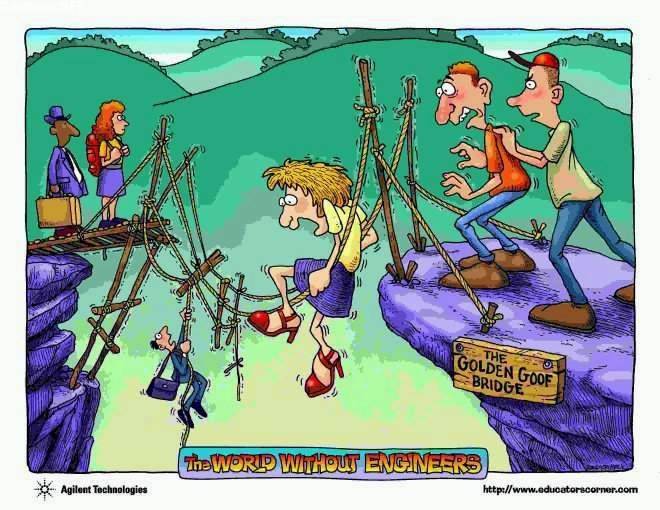
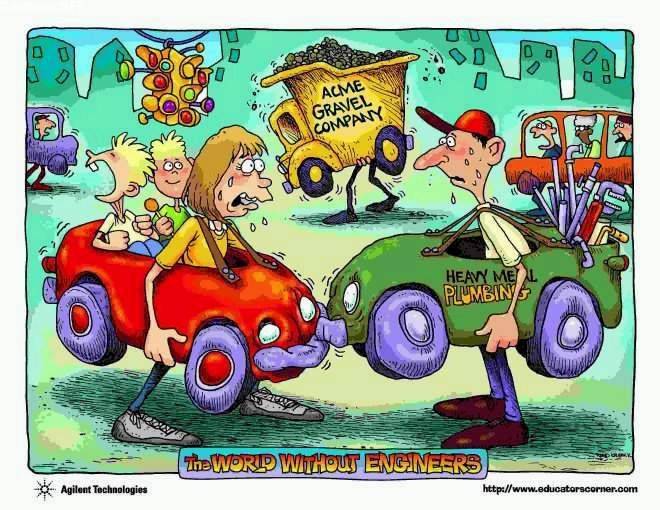
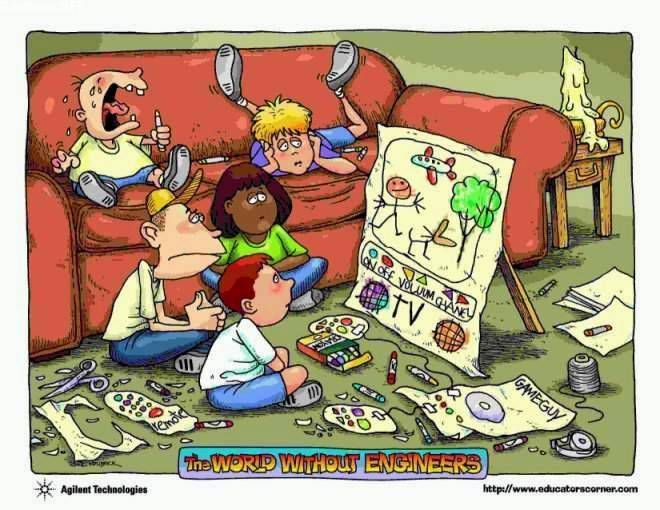
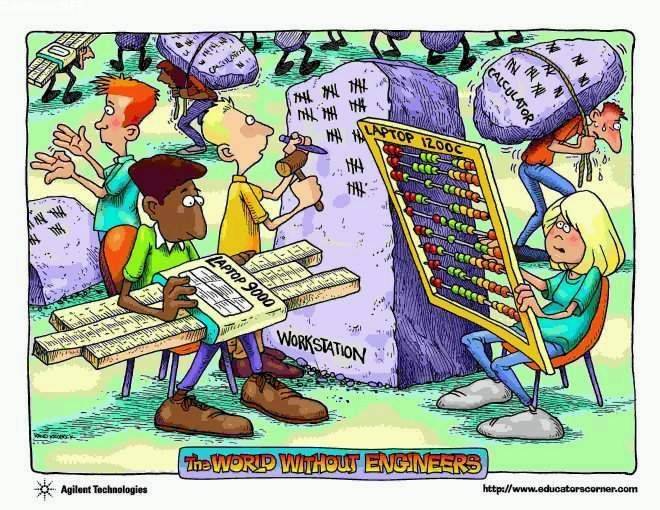
.jpeg)
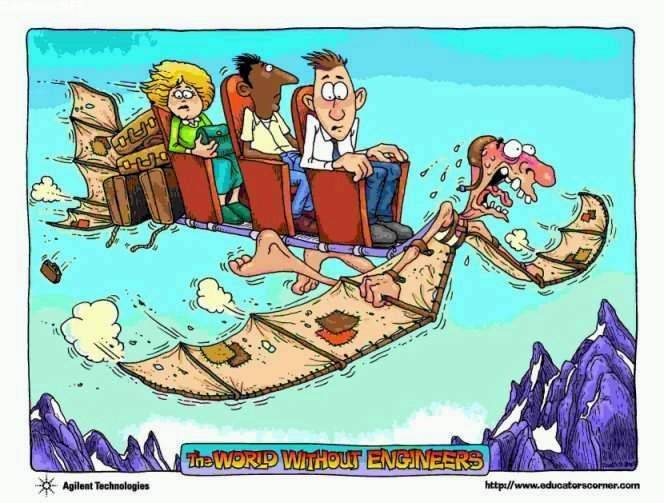
.jpeg)
.jpeg)
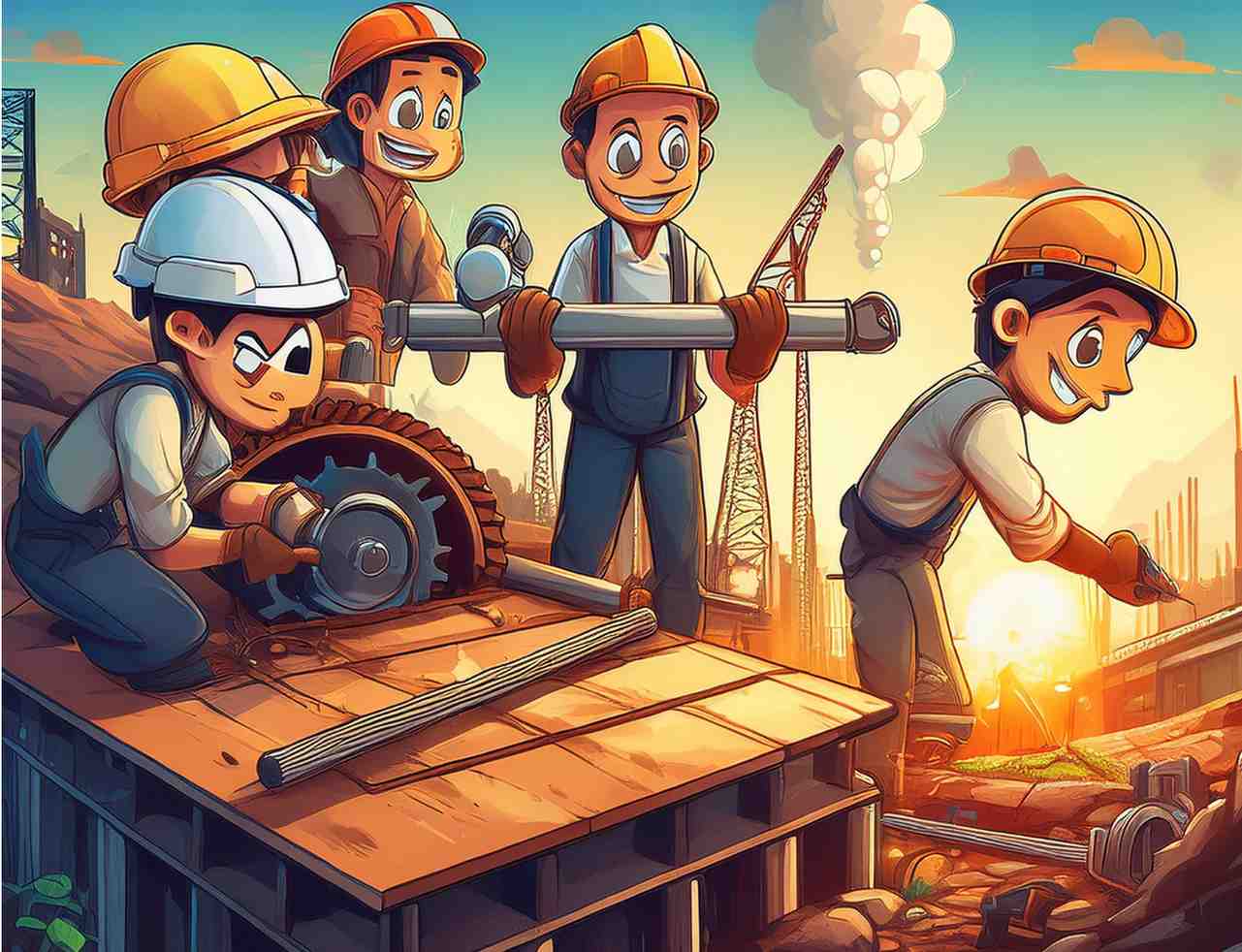
.jpeg)

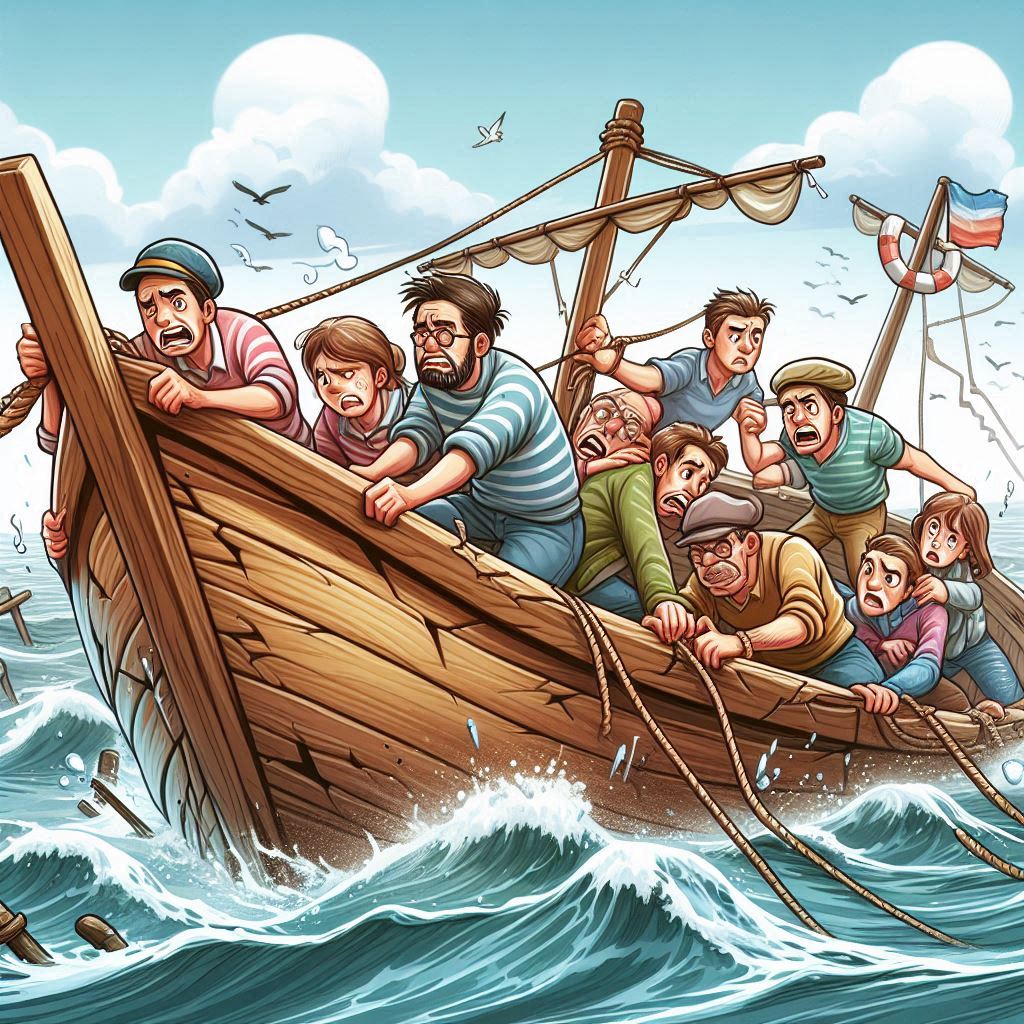
.jpeg)
